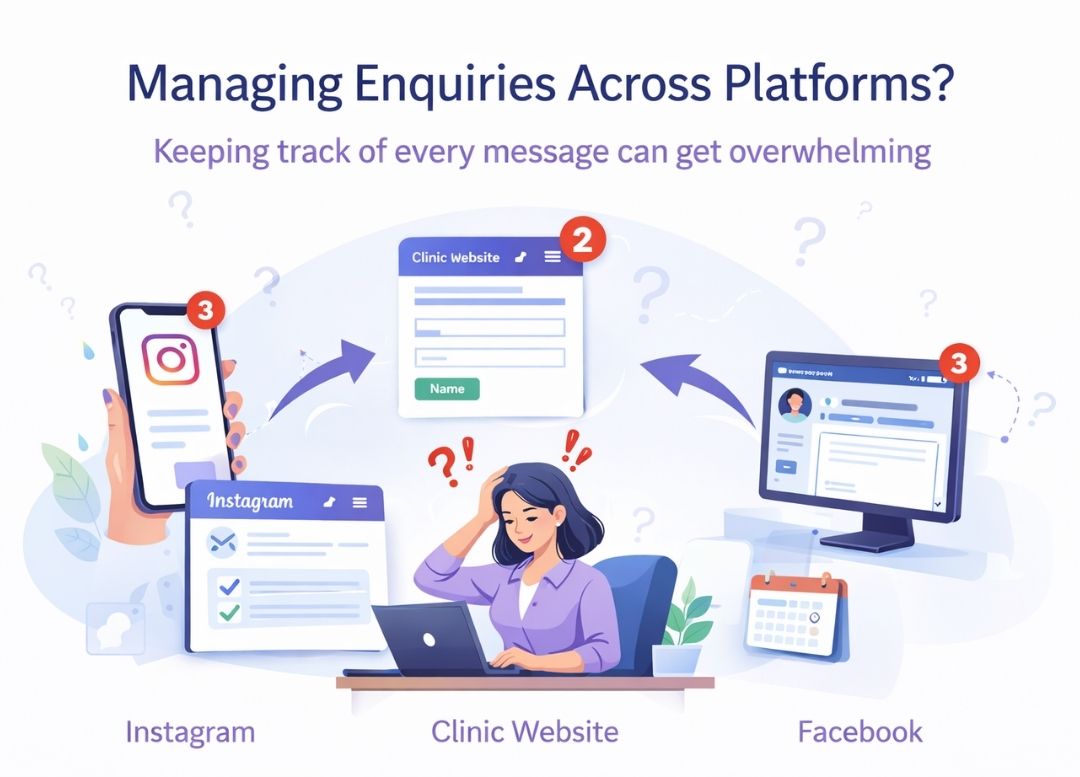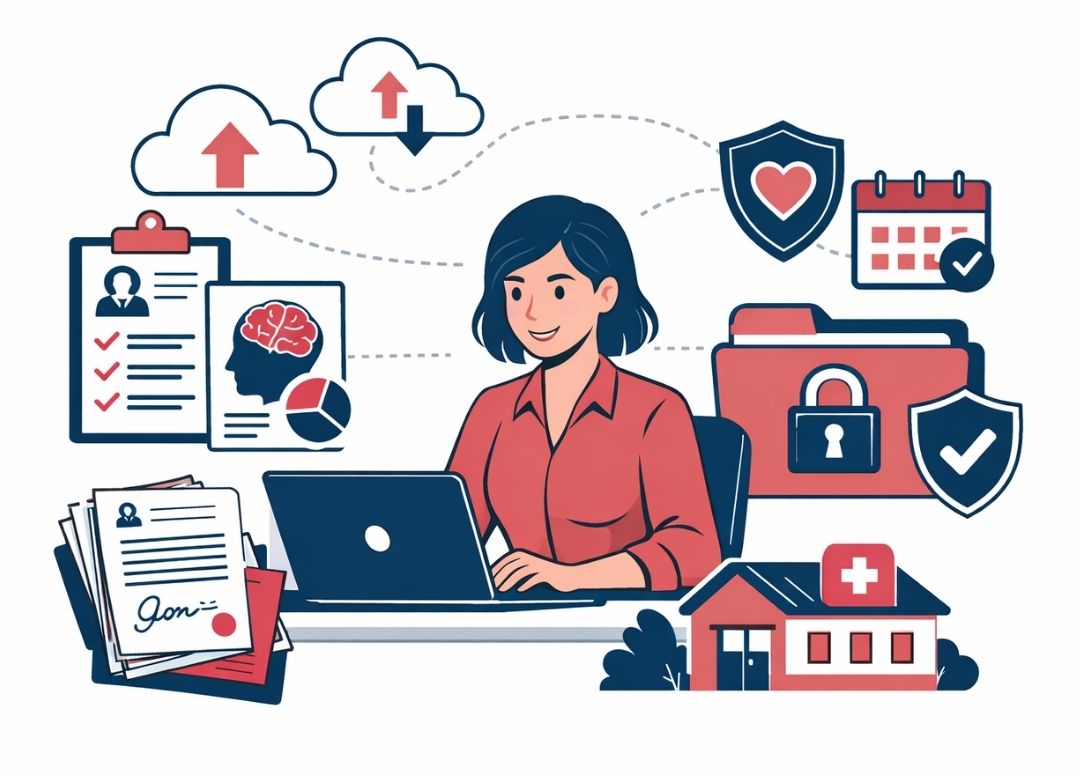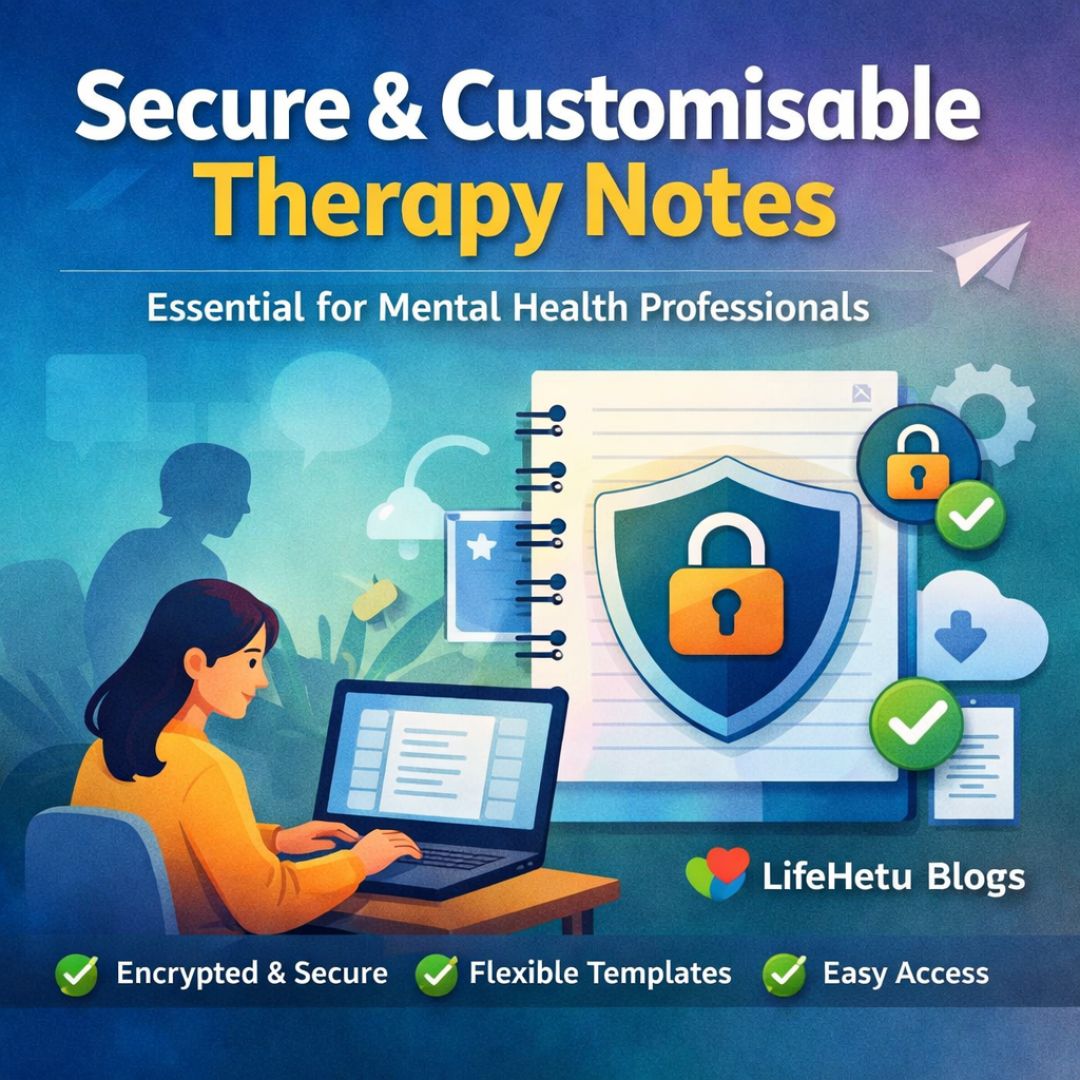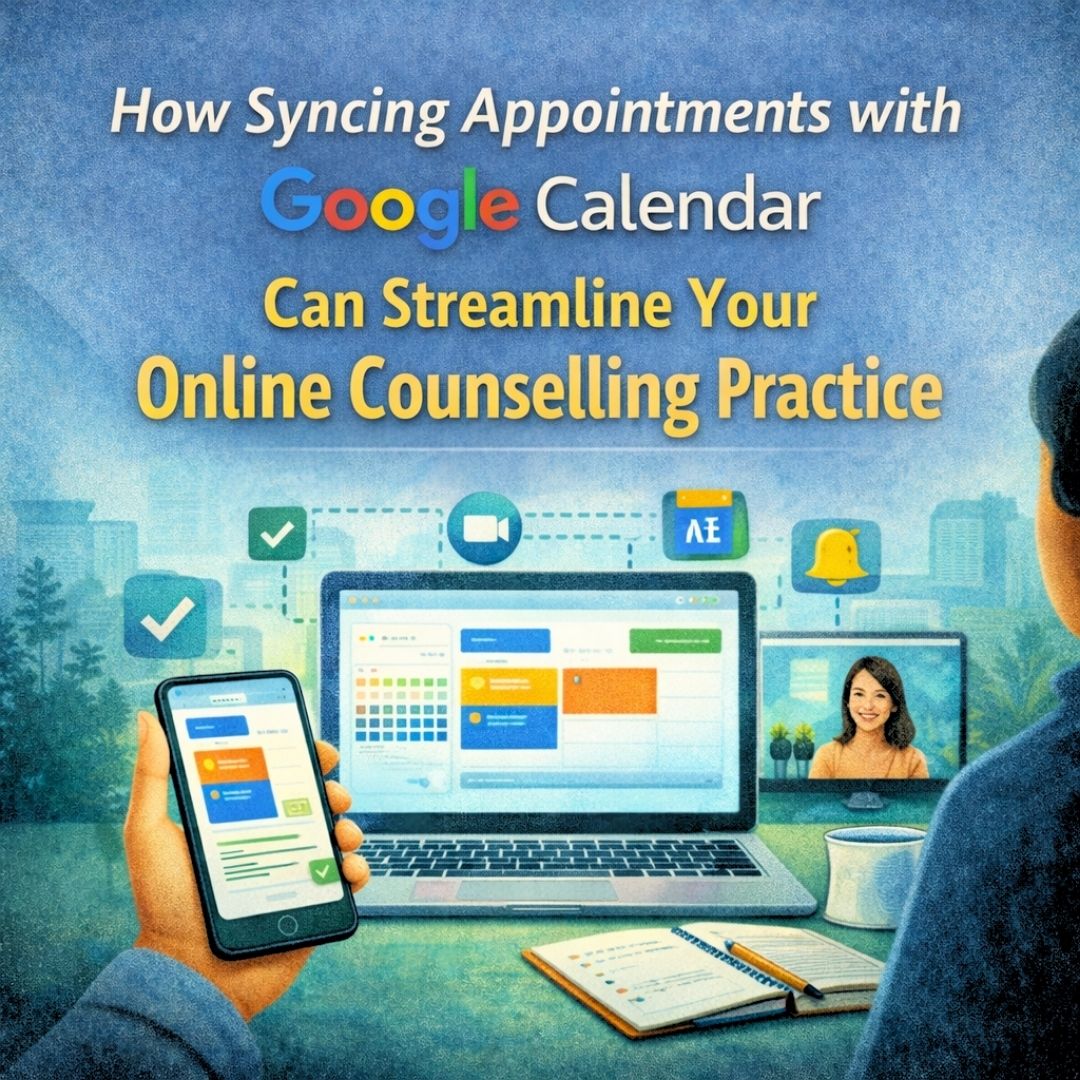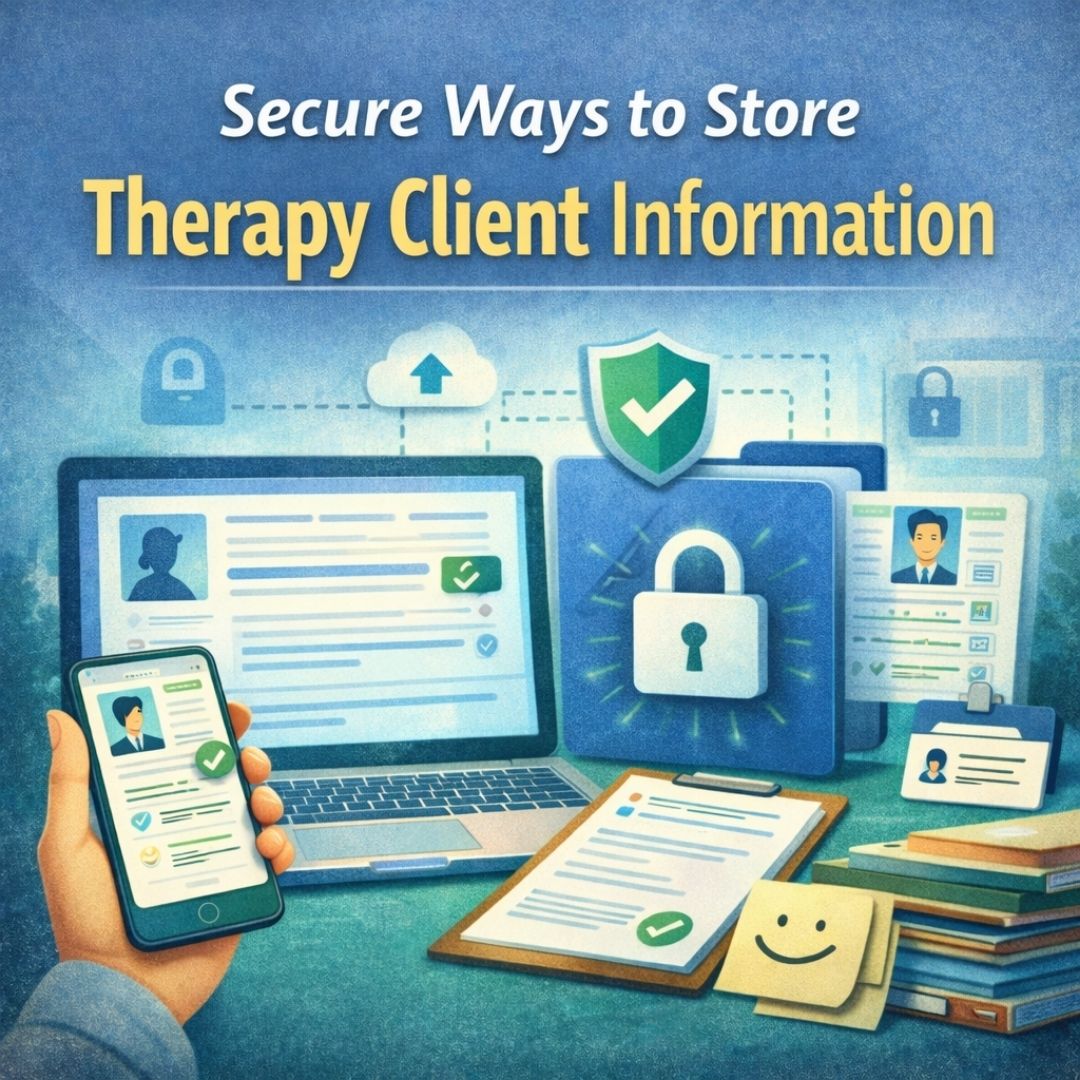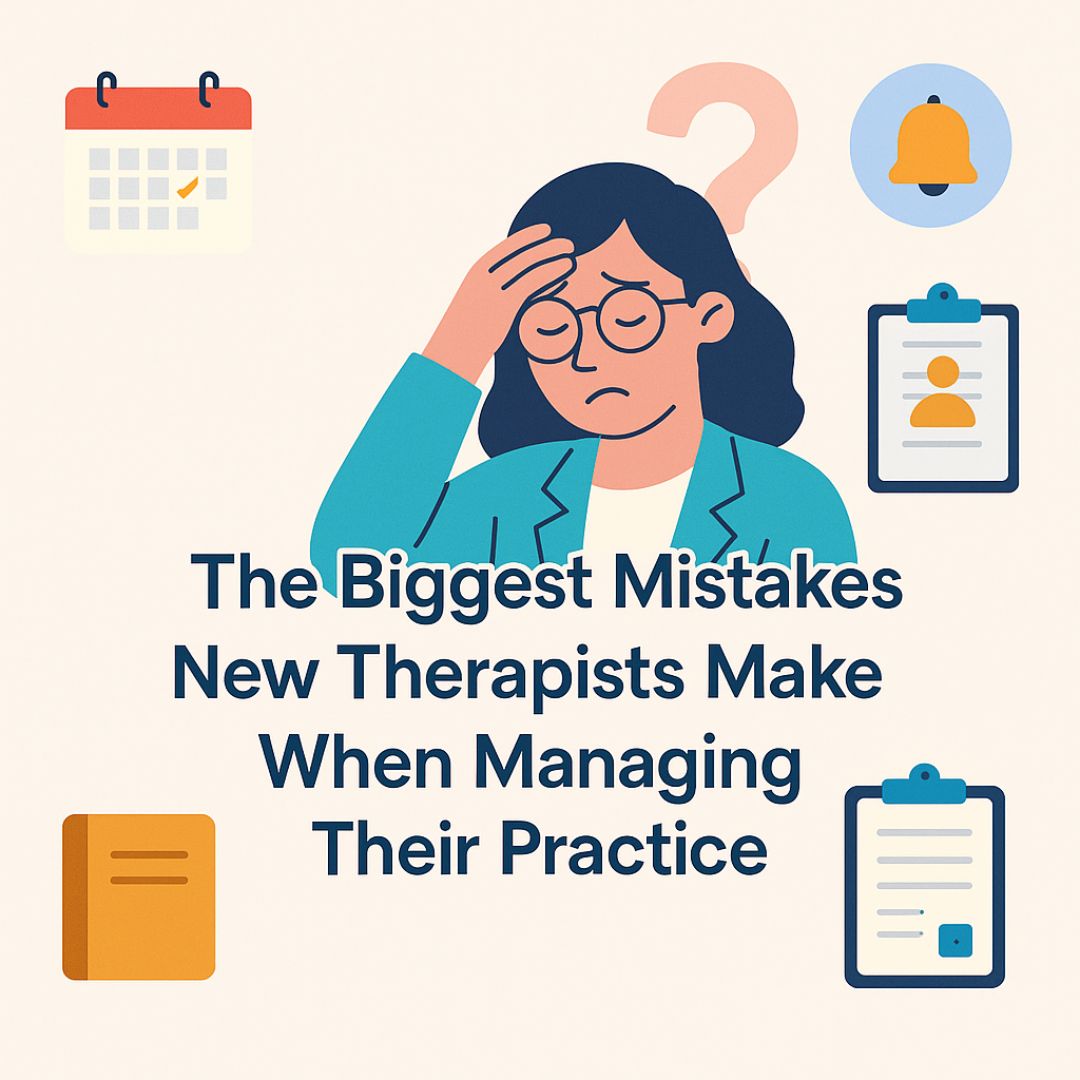How You Should Start a Counselling Session Online?
A professional website can serve as an effective platform to conduct online counselling sessions, providing convenience and accessibility for both the counsellor and the client. This blog will guide you on how to start a counselling session online through a website, emphasising the importance of a well-designed and optimised website for counsellors and enhancing their online presence for counsellors.
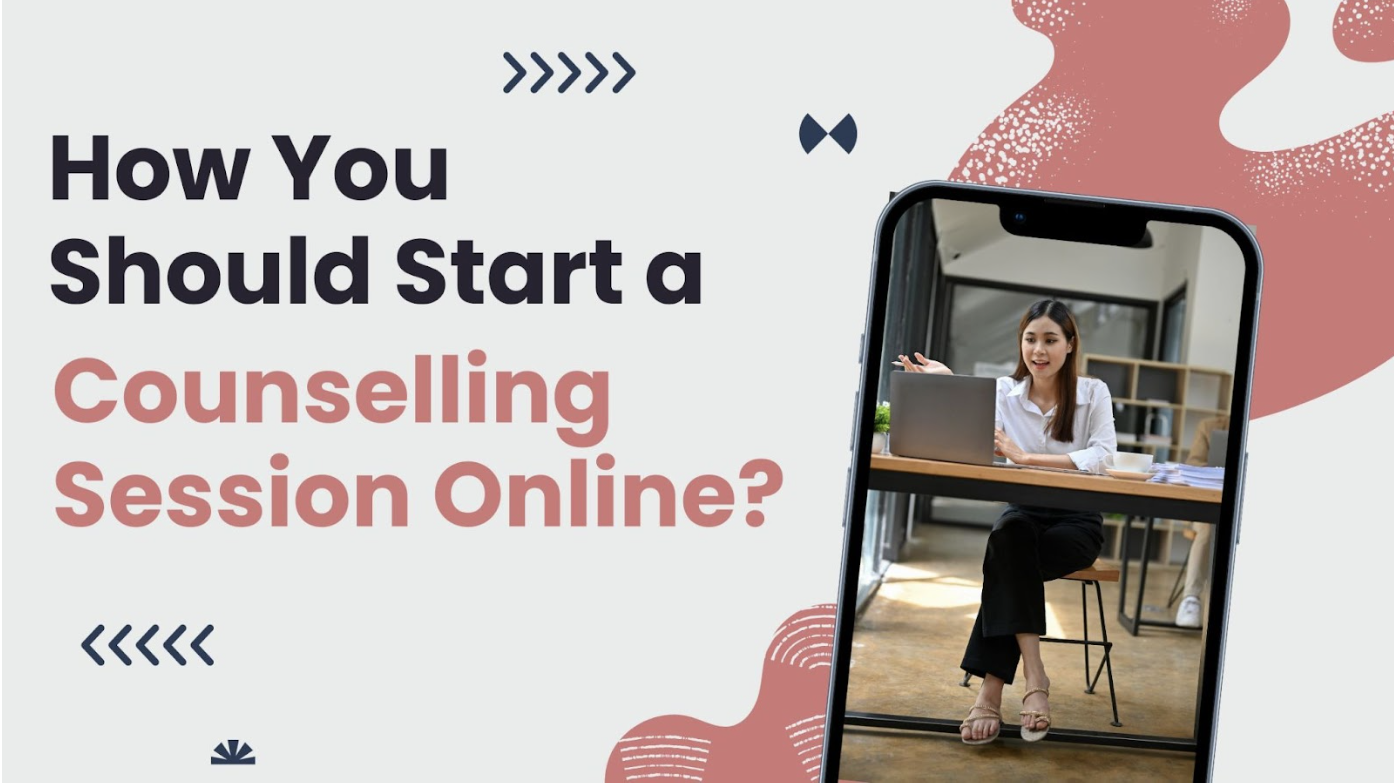
On this page
Jump to sections
In today’s digital world, having a strong online presence is crucial for any professional, including counsellors. A professional website can serve as an effective platform to conduct online counselling sessions, providing convenience and accessibility for both the counsellor and the client. This blog will guide you on how to start a counselling session online through a website, emphasising the importance of a well-designed and optimised website for counsellors and enhancing their online presence for counsellors.
Importance of a Professional Website for Counsellors
A professional website is not just an online business card; it's an essential tool for connecting with potential clients and providing them with easy access to your services. Here are some reasons why having a website for counsellors is crucial:
First Impressions Matter: Your website is often the first point of contact between you and your potential clients. A professional, well-designed website can create a positive first impression, establishing trust and credibility.
Accessibility: A website allows clients to find you easily and learn about your services at their convenience. It also enables you to reach a wider audience, including those who may not be able to attend in-person sessions.
Convenience: Through your website, clients can book appointments, access resources, and even participate in online counselling sessions, making the process more convenient for both parties.
Setting Up Your Website for Online Counselling Sessions
To start conducting online counselling sessions through your website, you need to ensure that your site is set up correctly and optimised for this purpose. Here are the key steps to follow:
Choose a Reliable Platform
Select a reliable and secure platform to build your website. LifeHetu which offers customizable templates and essential features for counsellors. Ensure that the platform you choose supports integration with video conferencing tools.Secure Your Website
Security is paramount, especially when dealing with sensitive client information. Ensure your website is encrypted with SSL (Secure Sockets Layer) certificates.Integrate Online Booking and Payment Systems
Incorporate an online booking system into your website to allow clients to schedule appointments easily. LifeHetu CRM Tools can be integrated seamlessly into your website. Additionally, set up secure online payment options to streamline the process for clients.Optimise for SEO
To attract more clients, optimise your website for search engines. Use relevant keywords in your content, meta descriptions, and headers. Regularly update your blog with informative articles on mental health and counselling to improve your SEO rankings and provide valuable resources for visitors.Provide Clear Instructions
On your website, include a dedicated page with clear instructions on how clients can prepare for and join online counselling sessions. Detail the steps for booking an appointment, accessing the video conferencing tool, and what to expect during the session. This transparency helps clients feel more comfortable and prepared.
Starting the Online Counselling Session
Once your website is set up and optimised, starting an online counselling session involves a few straightforward steps:Client Booking and Confirmation
When a client books an appointment through your website, send them a confirmation email with the details of the session, including the date, time, and a link to join the video call. Use automated systems to handle bookings and confirmations to save time and reduce administrative workload.Pre-Session Preparation
Before the session, ensure that both you and your client are prepared. Send a reminder email with any necessary pre-session instructions, such as ensuring a quiet and private space for the session. Confirm that your internet connection and equipment are working properly to avoid technical issues.Starting the Session
At the scheduled time, join the video call through the link provided. Begin the session by greeting your client warmly and ensuring they are comfortable with the online format. Clarify any technical aspects and address any questions or concerns they might have about the process.Conducting the Session
Conduct the counselling session as you would in person, maintaining professionalism and empathy. Utilise the features of your video conferencing tool, such as screen sharing or virtual whiteboards, if necessary, to enhance the session.Post-Session Follow-Up
After the session, send a follow-up email to your client. This email can include a summary of the session, any agreed-upon actions or homework, and a link to book the next appointment if needed. Providing additional resources or reading materials can also be beneficial.
Enhancing Your Online Presence for Counsellors
Beyond having a functional website, actively enhancing your online presence is crucial for attracting and retaining clients. Here are some strategies to consider:Social Media Engagement
Promote your services and share valuable content on social media platforms like Facebook, LinkedIn, and Instagram. Engage with your audience by responding to comments and messages, and join relevant groups or forums to increase your visibility.Blogging and Content Creation
Regularly update your blog with informative and engaging articles related to mental health and counselling. This not only improves your SEO rankings but also positions you as a knowledgeable and trustworthy professional in your field.Client Testimonials
Include client testimonials on your website to build credibility and trust. Positive feedback from satisfied clients can significantly influence potential clients' decision to book an appointment with you.Conclusion
Starting a counselling session online through a website is an effective and convenient way to connect with clients. By ensuring your website is professional, secure, and optimised for online sessions, you can provide a seamless and supportive experience for your clients. Investing in a strong online presence for counsellors will help you reach more clients, build trust, and grow your practice in the digital age.
FAQs
Why is a professional website important for counsellors?
It creates a positive first impression, improves accessibility, and allows convenient booking and online sessions.What are the key steps to set up a website for online counselling?
Choose a secure platform, integrate booking and payment systems, optimise for SEO, and provide clear session instructions.How can counsellors ensure a secure online counselling setup?
Use SSL encryption and reliable platforms like LifeHetu to protect client data and maintain confidentiality.What should counsellors do to start an online session effectively?
Confirm bookings, prepare clients and equipment, join the video call, and address any technical concerns warmly.How can counsellors enhance their online presence?
Engage on social media, publish regular blog content, and display client testimonials to build credibility.What follow-up steps improve the online counselling experience?
Send a post-session email with a summary, action items, and resources to support ongoing client care.Where can counsellors build a tailored website?
Explore solutions at LifeHetu.
On this page
Jump to sections
Related Reads. Similar Blogs to Check Out.
